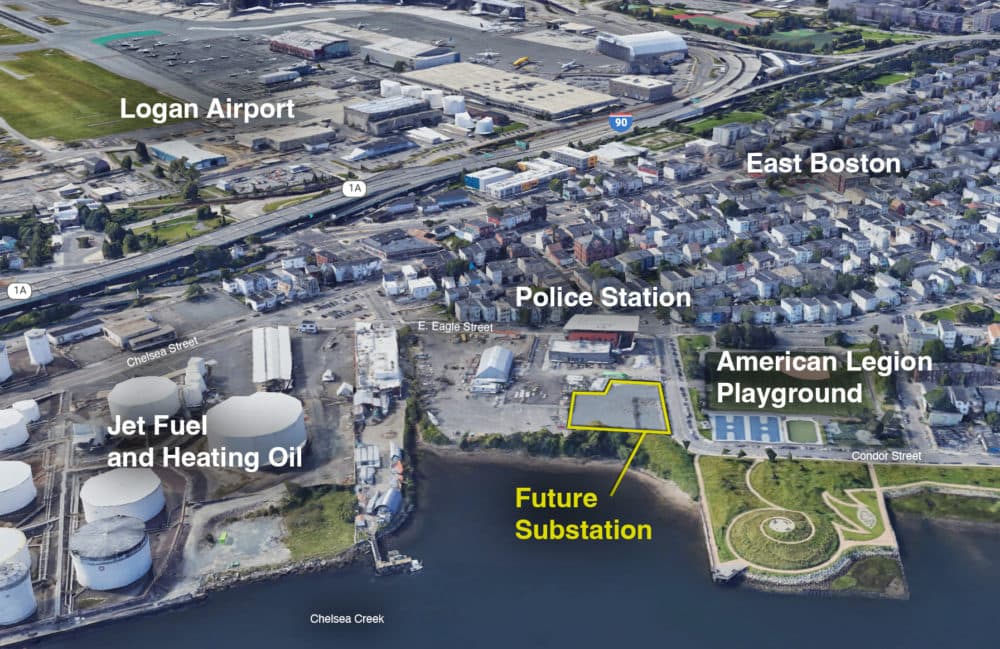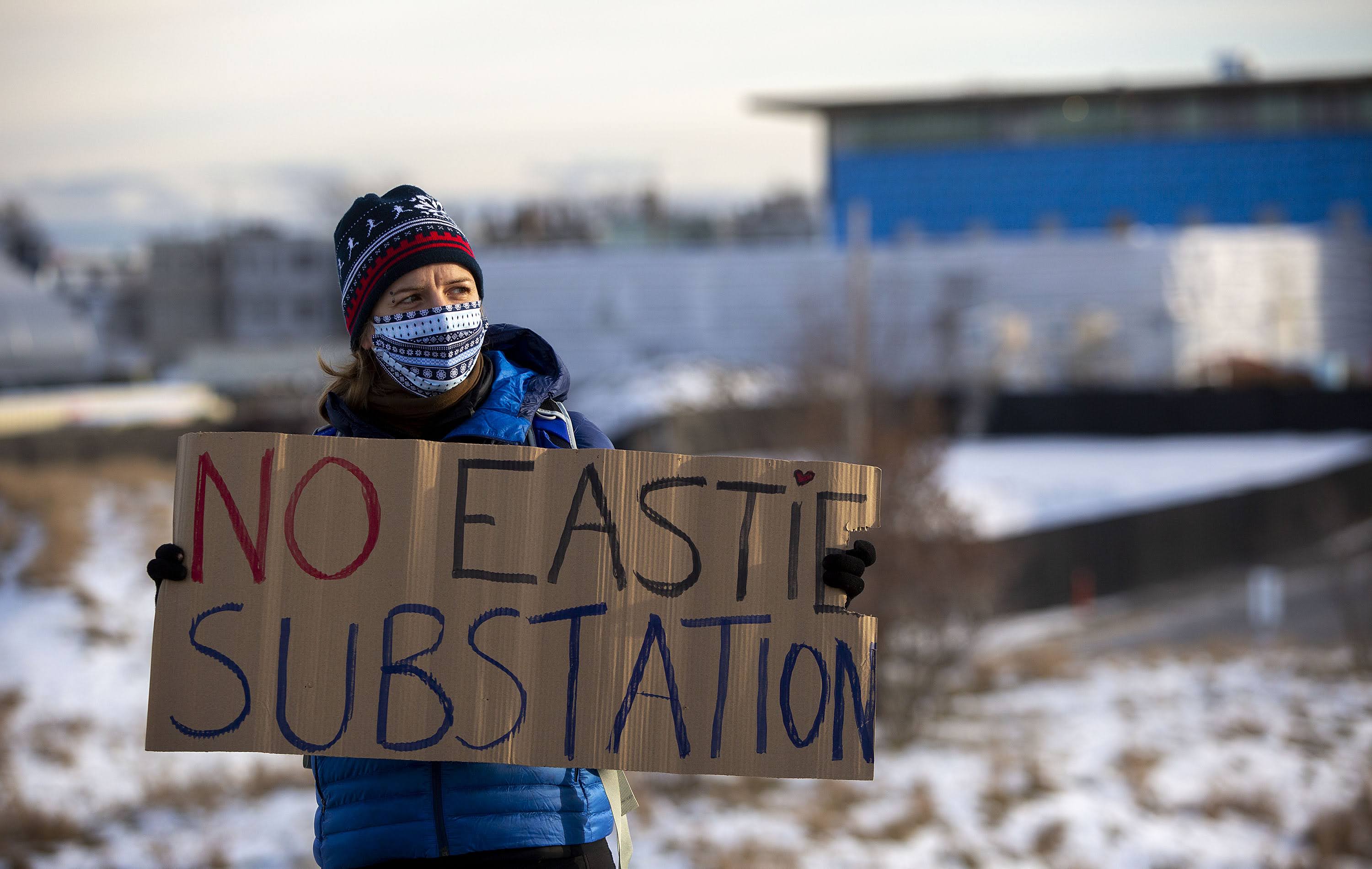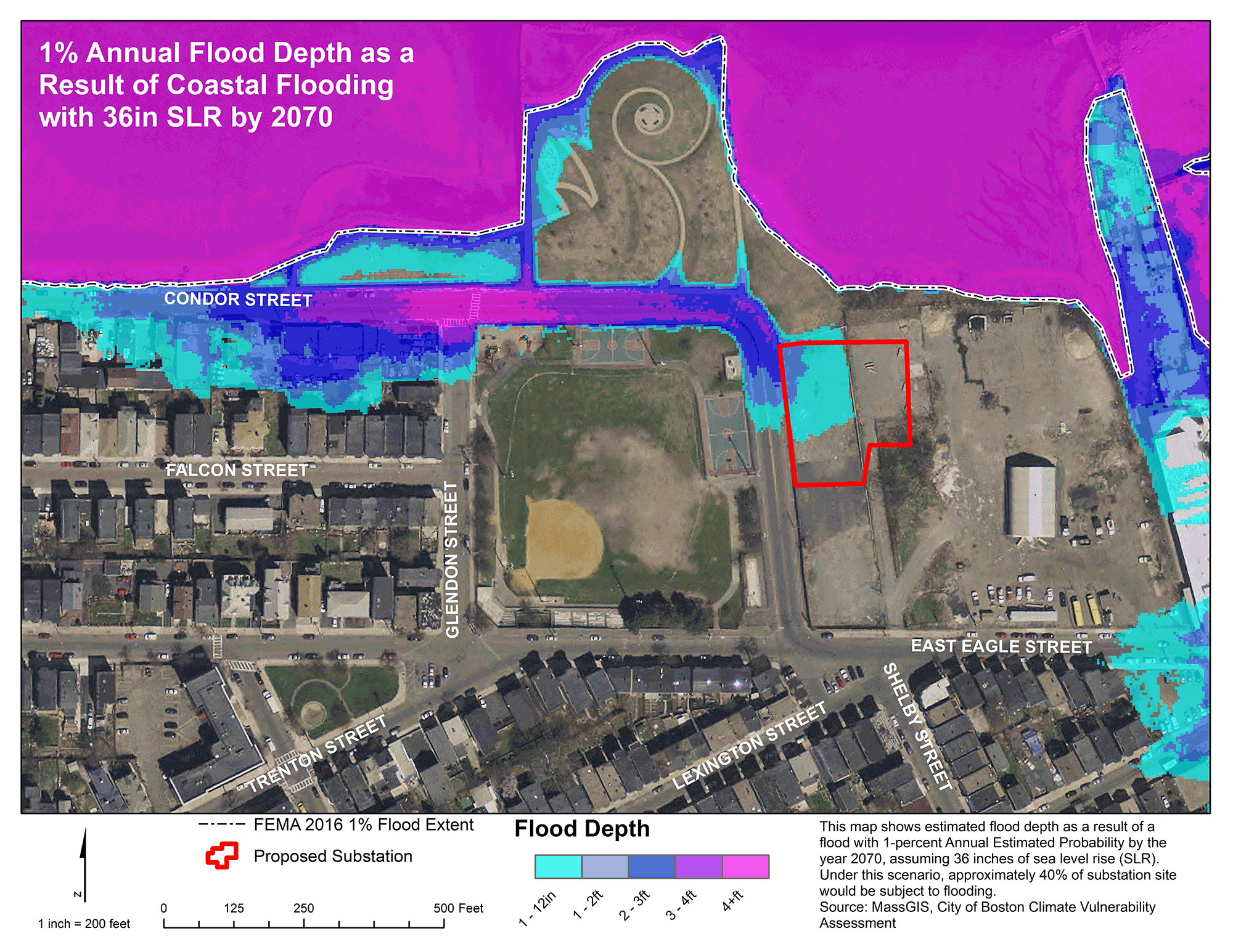Advertisement
East Boston substation gets a ‘tentative’ go-ahead to bypass state and local environmental permits

The state body in charge of approving energy projects looks poised to allow the utility Eversource to bypass the 14 remaining environmental permits it needs for a controversial substation in East Boston.
In a draft decision released this week, the state’s Energy Facilities Siting Board says it recommends approval of a special certificate "to ensure that the substation can be built to serve an immediate need for additional electric resources to maintain reliable service in the Chelsea/East Boston area.”
The board will make a final decision about whether to grant the so-called Certificate of Environmental Impact and Public Interest after a public hearing scheduled for later this month.
Eversource, which first proposed the project more than eight years ago, is applauding the tentative decision.
"Demand for electricity in East Boston continues to rise, making it necessary to build new infrastructure that will support growth for years to come," company spokesperson Christopher McKinnon wrote in an email.
Electrical substations are a critical part of the energy system. The one proposed for East Boston would take high voltage electricity from a transmission line running under Chelsea Creek and “step it down” to a lower voltage so that it can be sent through overhead wires and into peoples’ homes.
But while substations are ubiquitous and necessary, this one in East Boston has garnered a lot of opposition and become one of the most controversial energy projects in the state. Those trying to stop the facility have long argued that it violates the state’s environmental justice policy, questioned whether it’s actually needed for electric reliability, and asserted that building it near the flood-prone banks of Chelsea Creek and across the street from a popular playground is a public safety hazard.

John Walkey, the director of Waterfront & Climate Justice Initiatives at GreenRoots, the Chelsea-based environmental nonprofit leading the fight against the substation, calls the tentative decision “really infuriating, but not necessarily unexpected.”
Walkey says he assumed the board would rule in favor of Eversource, but actually reading the 200-plus page draft decision feels like “gut punch.” Actually, he clarifies, it feels “kind of like a second gut-punch” — last Friday, the Supreme Judicial Court of Massachusetts upheld the Energy Facilities Siting Board 2021 decision to approve the project despite issues GreenRoots raised about environmental justice.
As WBUR has previously reported, many residents of East Boston and Chelsea say they didn’t learn about the project until the approval process was well underway, and even then, they weren’t given the opportunity to meaningfully participate in the public comment period because of language barrier issues.
Advertisement
"This project keeps just barreling along through this system despite the number of valid and common sense concerns that have been raised by residents, by advocates, by elected officials," Walkey says.
He adds that in the years since his group started fighting the project, the concept of environmental justice as gone from “a niche advocacy movement to being something that most people are aware of now and are talking about, especially within the context of climate change and its impacts."
And yet, in his opinion, the Energy Facilities Siting Board hasn't kept pace and changed how it operates and assesses projects.
Staci Rubin, a lawyer with the Conservation Law Foundation, which has been representing GreenRoots in its fight to stop the substation, agrees. She writes in an email that the tentative decision “unfortunately reinforces and perpetuates the status quo by disregarding the community's concerns” and it “illustrates the critical and urgent need for reform of the laws and regulations concerning energy facility siting.”

Eversource first proposed building the substation in 2014 as part of a larger energy project for the East Boston, Chelsea and Everett area. The siting board approved Eversource's proposal in 2017 on the condition that the company consider moving the facility about 200 feet to the west. Eversource filed the project change in 2018, and after a long and contentious proceeding, the board approved it in February 2021.
With that approval in hand, Eversource set out to get the remaining 14 environmental permits it still needed. According to the company, some of those permitting agencies “unduly delayed and unreasonably conditioned” their approval, so the company appealed to the statewide siting board this past February for the superseding environmental certificate.
In the draft decision, the siting board says it thoroughly reviewed the project proposal and concluded that if the substation isn't built, East Boston and Chelsea could have problems meeting peak summertime electricity demand as soon as 2024. The board also concluded that there are no “viable alternatives” to the location Eversource chose, and made a point of saying that it followed all “applicable” environmental justice requirements when coming to this decision.
The siting board “finds that the environmental and energy benefits of the Substation outweigh the burdens, and that the Certificate meets the public need and convenience,” the tentative decision states.
We’re not against substations and electric reliability, Walkey says. But the question is whether this plot in East Boston is the best location for such a facility.
“And from an environmental justice perspective, it all comes down to costs and burdens and benefits," he says. "Who is bearing this burden? Who is paying the cost? And then who gets the benefits of all of this?"
If the final certificate is granted later this month, Walkey says GreenRoots will appeal the decision. And in the meantime, he hopes that Governor-elect Maura Healey will help find a way to stop the project once she takes office in January.
